
Professor Urban Alehagen, the lead researcher on the KiSel-10 Study, has emphasized the clinical significance of daily supplementation with both Coenzyme Q10 and high-selenium yeast. Both supplements have a protective antioxidant role in the prevention of heart disease.
In the previous article on this site, we discussed substances that can counteract or inhibit the bio-synthesis or absorption or efficacy of Coenzyme Q10. Today we want to look at substances that might actually boost the bio-synthesis or absorption or efficacy of Coenzyme Q10.
Among the substances we want to consider are the following nutritional supplements:
- carnitine
- NADH
- PQQ
- riboflavin
- selenium
High-Selenium Yeast Supplements and Coenzyme Q10
Professor Urban Alehagen writes that a deficiency of selenium may restrict the cells’ ability to get optimal concentrations of Coenzyme Q10. Moreover, the cells are dependent upon adequate concentrations of Coenzyme Q10 to achieve optimal function of selenium in the body. There seems to be a special interrelationship between Coenzyme Q10 and selenium that can be exploited clinically [Alehagen & Aaseth].
In the KiSel-10 Study, community dwelling Swedish senior citizens (average age at baseline: 78 years) took 200 milligrams of Coenzyme Q10 and 200 micrograms of selenium or matching placebos daily for four years. The active treatment group had significant heart health benefits [Alehagen]:
- reduced risk of death from heart disease
- improved heart function as seen on echocardiography
- better health-related quality of life
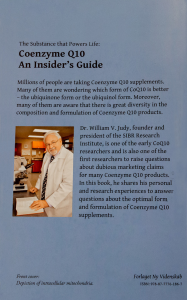
Dr. William V. Judy, President of SIBR Research, has summarized the clinical evidence for supplementation with Coenzyme Q10 in his new book Coenzyme Q10: An Insider’s Guide, now available on amazon.com. More information about Dr. Judy and his career in CoQ10 research is available on Wikipedia.
B-vitamins and Coenzyme Q10
The bio-synthesis of Coenzyme Q10 is a complicated 17-step process that requires the availability of numerous nutrients. The building blocks for the bio-synthesis of Coenzyme Q10 are the amino acids tyrosine and methionine and the acetyl-Coenzyme A molecules.
Numerous B vitamins are necessary as catalysts for the process of Coenzyme Q10 bio-synthesis [Pelton]:
- riboflavin (B2)
- niacinamide (B3)
- pantothenic acid (B5)
- pyridoxine (B6)
- folic acid
- cobalamin (B12)
Also necessary are vitamin C and numerous trace elements such as selenium mentioned above [Pelton].
Carnitine and Coenzyme Q10
A close bio-chemical interrelationship exists between the carnitine and Coenzyme Q10. Their complementary metabolic action has been examined in in-vitro and animal studies. The two compounds administered together exert a greater effect than either one alone [Conte; Bertelli; Montgomery; Rizos]:
- in energy production
- in antioxidant protection
- in the reduction of the risk of cell damage caused by anthracycline chemotherapy drugs
NADH and Coenzyme Q10
In an 8-week randomized, double-blind, placebo-controlled study, 80 chronic fatigue syndrome patients
took either Coenzyme Q10 plus NADH supplements or matching placebos twice daily. Researchers used an exercise test to evaluate maximum heart rate at baseline and at end of the 8-week period. They also evaluated fatigue, pain, and sleep at baseline and again at 4 weeks and 8 weeks using self-report questionnaires [Castro-Marrero].
The Coenzyme Q10 plus NADH group had a significant reduction in maximum heart rate during a cycle ergometer test at week 8 compared to baseline. The Coenzyme Q10 plus NADH study participants’ perception of fatigue was also significantly decreased in all follow-up visits. Perceptions of pain and sleep, on the other hand, did not improve in the active group. The Coenzyme Q10 plus NADH treatment was safe and well tolerated [Castro-Marrero].
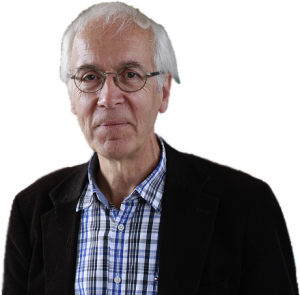
In the Q-Symbio Study, Professor Svend Aage Mortensen treated chronic heart failure patients daily with 300 milligrams of Coenzyme Q10 in addition to convention heart failure medications for two years. The results showed significantly improved symptoms and survival compared to placebo treatment.
PQQ (pyrroloquinoline quinone) and Coenzyme Q10
PQQ (pyrroloquinoline quinone) and Coenzyme Q10 taken together have been suggested to have a synergistic effect.
What is PQQ? Like Coenzyme Q10, it is a vitamin-like nutrient that, seemingly, can have antioxidant effect. Unlike Coenzyme Q10, PQQ is not produced naturally in the body. It must be gotten from food or supplements.
PQQ is said to have a beneficial impact on the mitochondria, which produce ATP energy for our cells and which regulate cellular metabolism [Harris].
In small human studies, PQQ was seen to prevent the reduction of brain function in aged persons, especially in attention and working memory [Itoh] and to reduce the plasma levels of the bio-markers for inflammation: C-reactive protein and IL-6 cytokines [Harris].
Animal studies seem to show that PQQ can play a role in the bio-genesis of mitochondria and can enable the mitochondria to generate more ATP [Ames]. Professor Bruce Ames has said that PQQ is promising as a longevity vitamin in humans [Ames].
To date (January 2020),we have not seen any RCTs testing the efficacy of PQQ combined with Coenzyme Q10.
Selenium and Coenzyme Q10 in Combination
In the KiSel-10 study, a randomized, double-blind, placebo-controlled study, senior citizens were assigned to take 200 milligrams of Coenzyme Q10 and 200 micrograms of selenium or matching placebos daily for four years. The data from the study has shown the following beneficial outcomes of the active treatment compared to the placebo treatment [Alehagen]:
- reduced risk of death from heart disease
- improved heart function seen on echocardiograms
- reduced plasma levels of a known bio-marker for increased risk of heart failure
- improved health-related quality of life
The lead researcher on the KiSel-10 study, Professor Urban Alehagen has proposed that the clinical significance of taking Coenzyme Q10 and selenium in combination is a factor of the antioxidant role of both Coenzyme Q10 in its reduced form and various selenium-containing antioxidant selenoproteins.
Professor Alehagen has emphasized the importance of the special interrelationship between Coenzyme Q10 and selenium. He says that low selenium intakes and status will prevent the cells from getting sufficient concentrations of Coenzyme Q10. Furthermore, he says, the cells will need adequate levels of Coenzyme Q10 if they are to reach optimal selenium function.
Summary: Coenzyme Q10 and Good Heart Health
Well-designed randomized, double-blind, placebo-controlled studies have shown that supplementation with Coenzyme Q10 confers heart health benefits in chronic heart failure patients [Mortensen], in senior citizens [Alehagen], and in veterans diagnosed with Gulf War Illness [Golomb]:
- Reduced risk of death from heart disease
- Improved heart function
- Improved physical function and quality of life
Sources
Alehagen U, Johansson P, Björnstedt M, Rosén A & Dahlström U. (2013). Cardiovascular mortality and N-terminal-proBNP reduced after combined selenium and Coenzyme Q10 supplementation: a 5-year prospective randomized double-blind placebo-controlled trial among elderly Swedish citizens. International Journal of Cardiology, 167(5), 1860-1866.
Alehagen U & Aaseth J. (2014). Selenium and Coenzyme Q10 interrelationship in cardiovascular diseases – A clinician’s point of view. Journal of Trace Elements in Medicine and Biology; 31:157-162.
Ames BN. (2018). Prolonging healthy aging: Longevity vitamins and proteins. Proc Natl Acad Sci U S A.; 115(43):10836-10844.
Bertelli A & Ronca G. (1990). Carnitine and Coenzyme Q10: biochemical properties and functions, synergism and complementary action. Int J Tissue React; 12: 183-6.
Castro-Marrero J, Sáez-Francàs N, Segundo MJ, Calvo N, Faroa M, Alistea L, Fernández de Sevilla T & Alegrea J. (2016). Effect of Coenzyme Q10 plus nicotinamide adenine dinucleotide supplementation on maximum heart rate after exercise testing in chronic fatigue syndrome. Clinical Nutrition; 35(4): 826-834.
Conte A, Palmieri L, Ronca G, Giovannini L, et al. (1990). Synergistic effects of L-carnitine and CoQ10 on long-chain fatty acid metabolism and on protection against anthracyclines. Int J Tissue React; 12: 197-201.
Deichmann RE, Lavie CJ & Dornelles AC. (2012). Impact of Coenzyme Q-10 on parameters of cardio-respiratory fitness and muscle performance in older athletes taking statins. Phys Sportsmed; 40:88-95.
Harris CB, et al. (2013). Dietary pyrroloquinoline quinone (PQQ) alters indicators of inflammation and mitochondrial-related metabolism in human subjects. J Nutr Biochem; 24:2076–2084.
Itoh Y, et al. (2016). Effect of the antioxidant supplement pyrroloquinoline quinone
disodium salt (BioPQQ™) on cognitive functions. Adv Exp Med Biol; 876:319–325.
Judy WV. (2018). E-mail communication.
Kalén A, Appelkvist EL & Dallner G. (1989). Age-related changes in the lipid compositions of rat and human tissues. Lipids, 24(7):579–584.
Littarru GP & Lambrechts P. (2011). Coenzyme Q10: multiple benefits in one ingredient; OCL (Oilseeds and Fats, Crops and Lipids); 18: 76-82.
López-Lluch G, Del Pozo-Cruz J, Sánchez-Cuesta A, Cortés-Rodríguez A B & Navas P. (2019). Bioavailability of Coenzyme Q10 supplements depends on carrier lipids and solubilization. Nutrition, 57, 133–140.
Mantle D & Hargreaves I. (2019). Coenzyme Q10 and degenerative disorders affecting longevity: an overview. Antioxidants (Basel); 8(2): 44.
Montgomery SA, Thal LJ & Amrein R. (2003). Meta-analysis of double blind randomized controlled clinical trials of acetyl-L-carnitine versus placebo in the treatment; Int Clin Psychopharmacol; 18: 61-71.
Mortensen S A, Rosenfeldt F, Kumar A, Dolliner P, Filipiak K J, Pella D & Littarru GP (2014). The effect of Coenzyme Q10 on morbidity and mortality in chronic heart failure: results from Q-SYMBIO: a randomized double-blind trial. JACC. Heart Failure, 2(6), 641-649.
Pelton R & LaValle JB. (2000). Nutritional Cost of Prescription Drugs. 1st ed. Englewood, CO: Morton Pub.
Rizos I. (2000). Three-year survival of patients with heart failure caused by dilated cardiomyopathy
and L-carnitine administration. Am Heart J; 139:2 Pt 3 S120-3.
The information contained in this review article is not intended as medical advice and should not be construed as such.
16 January 2020




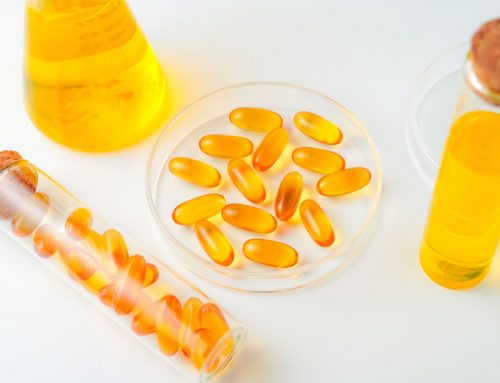

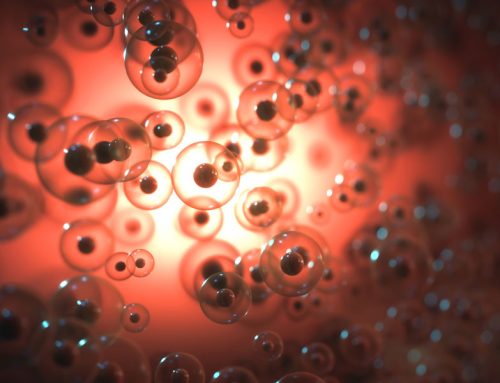
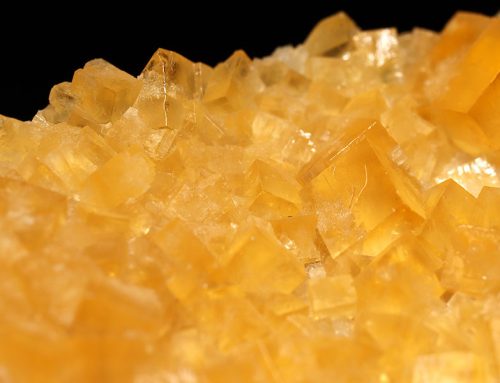
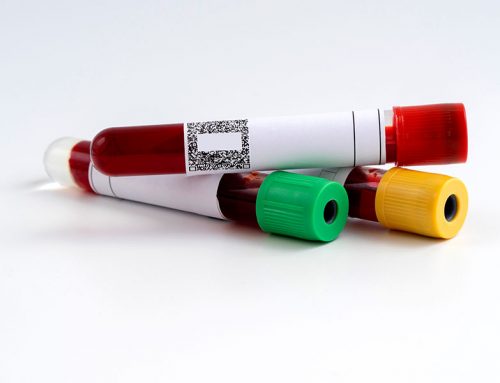
Leave A Comment